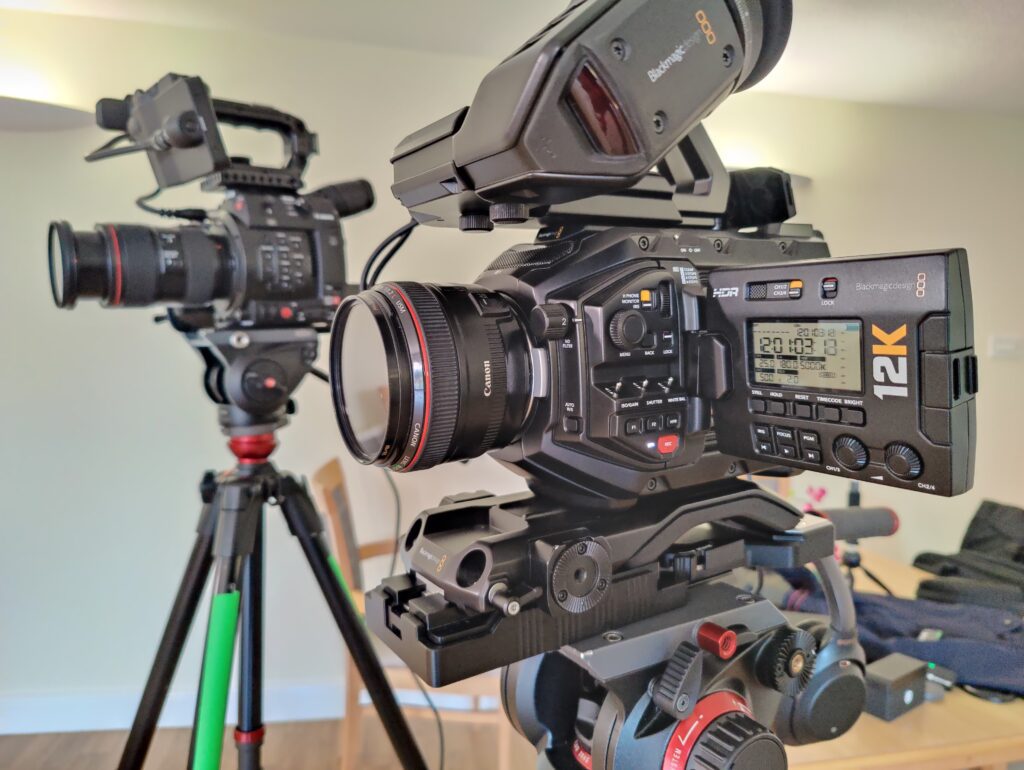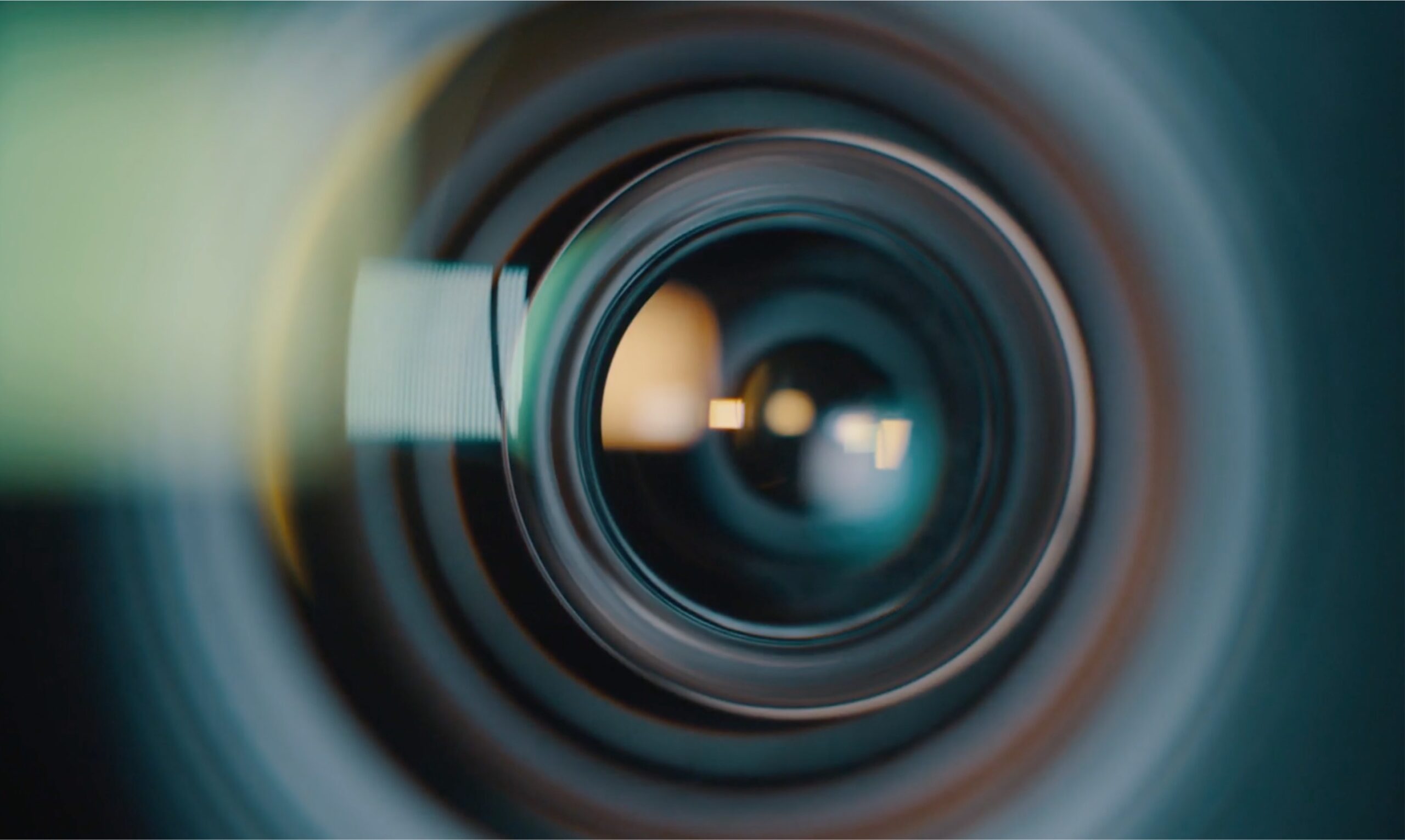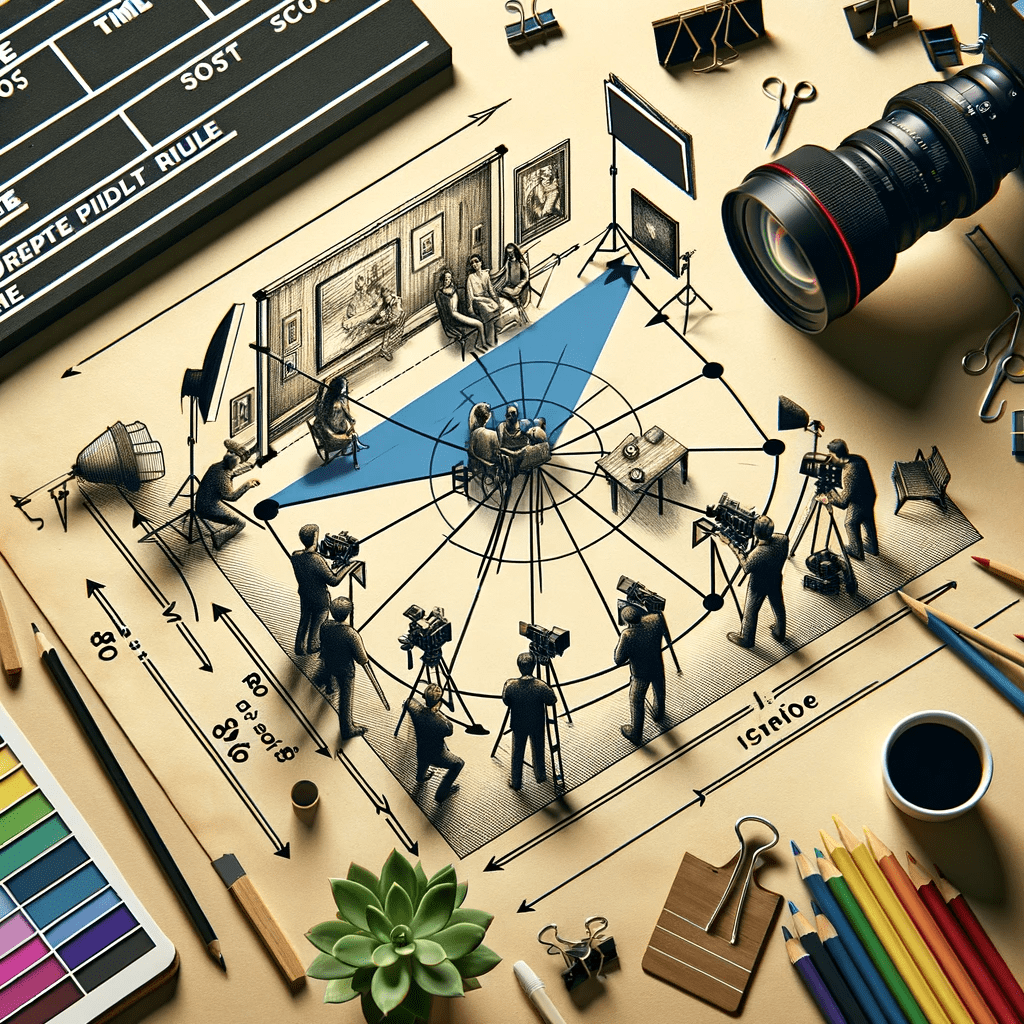Choosing the right camera equipment is crucial for video production. The market is flooded with options, from DSLRs to mirrorless and 4K cameras, each offering unique features tailored to different needs. In this comprehensive guide, we’ll explore the best cameras for video production, provide detailed reviews, and offer comparisons to help you make an informed decision.

Understanding Camera Types
Before diving into the best cameras for video production, it’s important to understand the different types available:
- DSLR Cameras: Known for their versatility and high-quality images, DSLRs have long been a favourite among videographers.
- Mirrorless Cameras: Compact and packed with advanced features, mirrorless cameras are becoming increasingly popular for video production.
- 4K Cameras: Offering ultra-high-definition video quality, 4K cameras are ideal for those looking to produce cinematic content.
Best Cameras for Video Production
Canon EOS R5
- Type: Mirrorless
- Key Features: 8K video recording, Dual Pixel CMOS AF, in-body image stabilisation.
- Why It’s Great: The Canon EOS R5 offers exceptional video quality and advanced autofocus, making it perfect for professional videographers.
Sony A7S III
- Type: Mirrorless
- Key Features: 4K recording at 120fps, excellent low-light performance, real-time Eye AF.
- Why It’s Great: The Sony A7S III excels in low-light conditions and offers high frame rates, making it ideal for a variety of shooting scenarios.
Panasonic Lumix GH5
- Type: Mirrorless
- Key Features: 4K 60fps recording, 10-bit 4:2:2 internal recording, versatile lens options.
- Why It’s Great: The Panasonic Lumix GH5 is a versatile and affordable option that delivers professional-grade video quality.
Canon EOS 90D
- Type: DSLR
- Key Features: 4K video, Dual Pixel AF, vari-angle touchscreen.
- Why It’s Great: The Canon EOS 90D combines the classic DSLR feel with modern video capabilities, making it a reliable choice for many videographers.
Blackmagic Pocket Cinema Camera 6K
- Type: Cinema Camera
- Key Features: 6K video, Super 35 sensor, high dynamic range.
- Why It’s Great: Designed for serious filmmakers, the Blackmagic Pocket Cinema Camera 6K offers stunning video quality and professional features.
Comparing DSLRs and Mirrorless Cameras
When deciding between DSLRs and mirrorless cameras, consider the following factors:
- Size and Weight: Mirrorless cameras are generally more compact and lighter than DSLRs, making them easier to handle during long shoots.
- Autofocus: Mirrorless cameras often feature advanced autofocus systems with real-time tracking, which can be advantageous for video production.
- Lens Compatibility: DSLRs have a wider range of compatible lenses, although the gap is narrowing as more mirrorless lenses become available.
- Viewfinder: DSLRs use optical viewfinders, providing a direct view through the lens, while mirrorless cameras use electronic viewfinders, offering a digital preview of the image.
4K Cameras: Why You Need One
4K cameras provide four times the resolution of standard HD, resulting in incredibly detailed and sharp footage. Here are a few reasons to consider a 4K camera:
- Future-Proofing: As 4K becomes the standard, investing in a 4K camera ensures your content stays relevant.
- Editing Flexibility: Higher resolution footage allows for more flexibility in post-production, including cropping and stabilising without losing quality.
- Enhanced Detail: 4K resolution captures more detail, making your videos look more professional and immersive.
Conclusion
Choosing the best camera for video production depends on your specific needs and budget. Whether you opt for a DSLR, mirrorless, or 4K camera, each type offers unique advantages. The Canon EOS R5, Sony A7S III, and Panasonic Lumix GH5 are excellent choices for their respective strengths. By understanding the features and benefits of each camera type, you can make an informed decision that enhances your video production quality.
Ready to upgrade your video production gear? Explore these top camera options and find the perfect fit for your needs. For more information or personalised recommendations, please contact us directly. We’re here to help you make the best choice for your video production needs.
By following these guidelines, you’ll be well on your way to mastering video production with the best camera equipment available.





